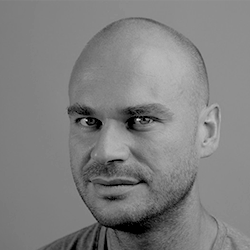Workshops
Serverless Machine Learning with TensorFlow
Carl Osipov
Carl Osipov walks you through building a complete machine learning pipeline from ingest, exploration, training, and evaluation to deployment and prediction. This workshop will be conducted on the Google Cloud Platform (GCP) and will use GCP’s infrastructure to run TensorFlow.The topics include: 1) Data pipelines and data processing: How to explore and split large datasets correctly using SQL and Python Pandas on BigQuery 2) Model building: How to develop a wide-and-deep machine learning model in TensorFlow on a small sample locally (using Apache Beam for preprocessing operations so that the same preprocessing can be applied in streaming mode as well and Cloud Dataflow and Cloud ML Engine for preprocessing and training of the model 3) Model inference and deployment: How to deploy the trained model as a REST microservice with predictions invoked from a web application
Hands on Deep Learning with Keras, Tensorflow, and Apache Spark™ (Official Databricks Workshop)
Zoltan C. Toth
Overview
This course is aimed at the practitioner data scientist who is eager to get started with deep learning, as well as software engineers and technical managers interested in a thorough, hands-on overview of deep learning and its integration with Apache Spark.
The course covers the fundamentals of neural networks and how to build distributed Tensorflow models on top of Spark DataFrames. Throughout the class, you will use Keras, Tensorflow, Deep Learning Pipelines, and Horovod to build and tune models. This course is taught entirely in Python.
Each topic includes lecture content along with hands-on labs in the Databricks notebook environment.
Learning Objectives
- Build a neural network with Keras
- Explain the difference between various activation functions and optimizers
- Track experiments with MLflow
- Apply models at scale with Deep Learning Pipelines
- Perform transfer learning
- Build distributed Tensorflow models with Horovod
Topics
- Intro to Neural Networks with Keras
- Neural network architectures
- Activation functions
- Evaluation metrics
- Batch sizes, epochs, etc.
- MLflow
- Reproducible ML/DL
- Convolutional Neural Networks
- Convolutions
- Batch Normalization
- Max Pooling
- ImageNet Architectures
- Deep Learning Pipelines
- Model inference at scale
- Horovod
- Distributed Tensorflow training
- Ring-All Reduce
What is your ideal business case for AI? Non-technical workshop
Gergely Szertics
Levente Szabados
The revolution is in full swing. We read about new and new achievements from research labs around the globe - mostly from the “big players”. But with all this hype, what is the ideal use case for you and your organization?How can you know, what is just up and coming, and what is already practical reality? Leaning on the expertise on our consulting partner AI Partners, we would like to help you to separate fact from fiction and find your own potential use-cases. Based on the analysis of 3500+ AI startups and 500 specific use cases with KPIs, we are ready to give you a picture of how the market evolves, what benefits you can expect from an AI project implemented in your business, and what pitfalls should you avoid. (The workshop is targeted to business audience, so no technological expertise is required.) “Why now?” - Historical context, is there really a revolution going on? “What do we mean by AI anyhow” How do companies adapt AI? - Learnings from 500 use cases From build to buy - What is the appropriate way for my problems? Workshop: elaborating use-cases for your organisation under expert supervision (Interactive modul to identify specific use-cases to understand the practical difficulties and opportunities in implementing AI based technologies) How will my organization change? Outlook - How will my world change?Program
Practical PyTorch
Stefan Otte
- basic PyTorch concepts (such as tensors, nn.Module, DataSet, DataLoader),
- debugging of networks,
- application of DNNs for computer vision (and maybe more)
- some new PyTorch 1.0 features.
Material for the workshop: https://github.com/sotte/pytorch_tutorial
Microsoft Ai - From Platform to Custom Solutions
Karoly Bozo
Mark Szabo
A hands-on workshop on the full Azure AI coverage with two main topics: One would be to show how other third-party solutions like TensorFlow and TensorBoard can run on the Azure AI platform demonstrating the agnostic approach. The participant will learn: to use Jupyter notebooks running on Azure how neural network are built up with the help of Keras how the same model can be built without coding in Azure ML Studio how out-of-the-box cognitive services models can be utilized to solve the same problem The second one will showcase the building process of a bot solution from scratch and some real life experience with the implementation and integration of an intelligent corporate bot. The participant will learn: to use Microsoft's language understanding service to convert a FAQ to a knowledge base to authenticate users and integrate with existing chat clients including Messenger, Skype, Teams, Slack






